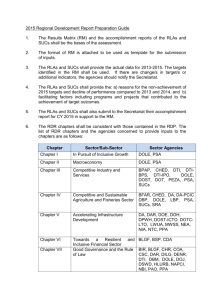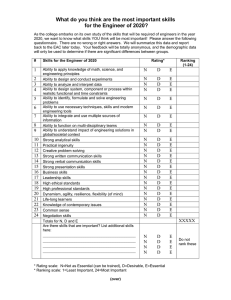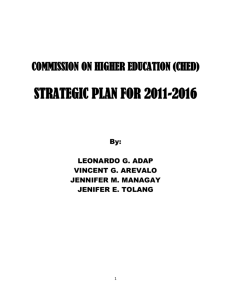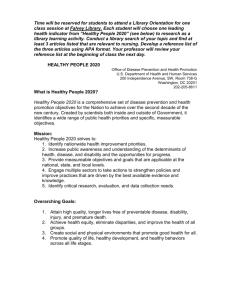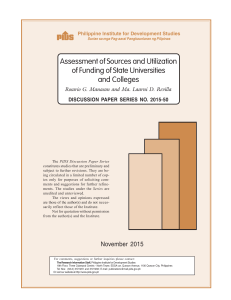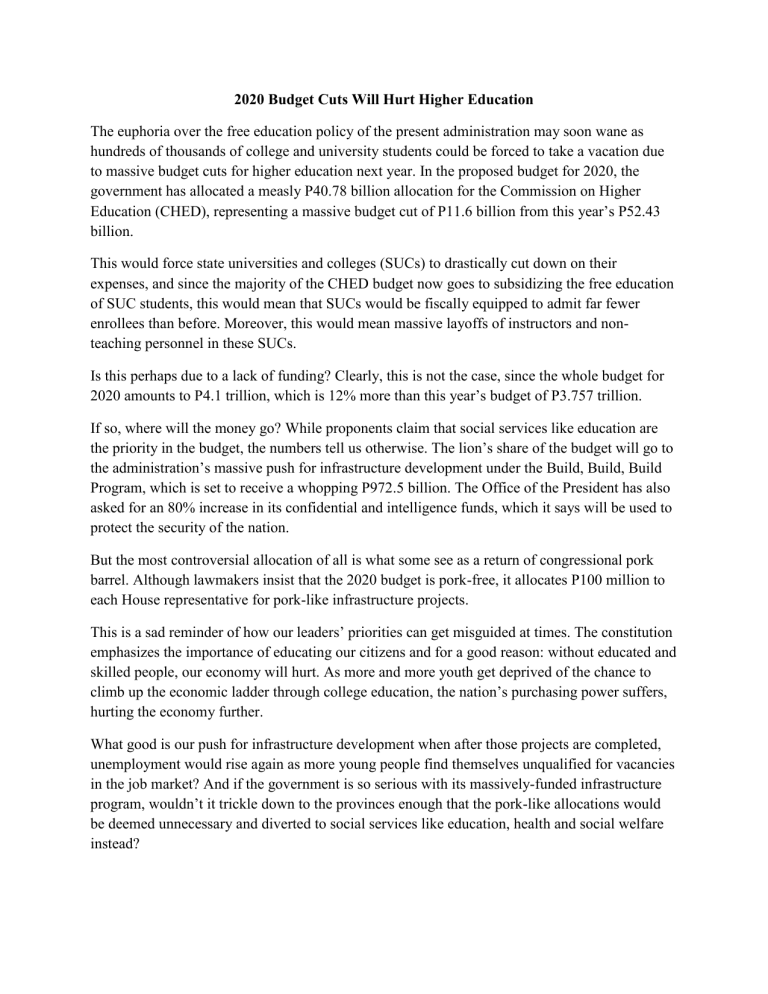
2020 Budget Cuts Will Hurt Higher Education The euphoria over the free education policy of the present administration may soon wane as hundreds of thousands of college and university students could be forced to take a vacation due to massive budget cuts for higher education next year. In the proposed budget for 2020, the government has allocated a measly P40.78 billion allocation for the Commission on Higher Education (CHED), representing a massive budget cut of P11.6 billion from this year’s P52.43 billion. This would force state universities and colleges (SUCs) to drastically cut down on their expenses, and since the majority of the CHED budget now goes to subsidizing the free education of SUC students, this would mean that SUCs would be fiscally equipped to admit far fewer enrollees than before. Moreover, this would mean massive layoffs of instructors and nonteaching personnel in these SUCs. Is this perhaps due to a lack of funding? Clearly, this is not the case, since the whole budget for 2020 amounts to P4.1 trillion, which is 12% more than this year’s budget of P3.757 trillion. If so, where will the money go? While proponents claim that social services like education are the priority in the budget, the numbers tell us otherwise. The lion’s share of the budget will go to the administration’s massive push for infrastructure development under the Build, Build, Build Program, which is set to receive a whopping P972.5 billion. The Office of the President has also asked for an 80% increase in its confidential and intelligence funds, which it says will be used to protect the security of the nation. But the most controversial allocation of all is what some see as a return of congressional pork barrel. Although lawmakers insist that the 2020 budget is pork-free, it allocates P100 million to each House representative for pork-like infrastructure projects. This is a sad reminder of how our leaders’ priorities can get misguided at times. The constitution emphasizes the importance of educating our citizens and for a good reason: without educated and skilled people, our economy will hurt. As more and more youth get deprived of the chance to climb up the economic ladder through college education, the nation’s purchasing power suffers, hurting the economy further. What good is our push for infrastructure development when after those projects are completed, unemployment would rise again as more young people find themselves unqualified for vacancies in the job market? And if the government is so serious with its massively-funded infrastructure program, wouldn’t it trickle down to the provinces enough that the pork-like allocations would be deemed unnecessary and diverted to social services like education, health and social welfare instead? The least we can hope for now is that those supposed projects will truly benefit each representative’s constituents. And as for the state of tertiary education in the country, we can at least expect a steady supply of young laborers for the infrastructure projects now that they may not be able to avail of free education anymore.
